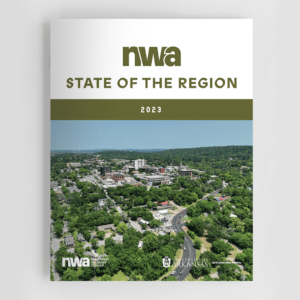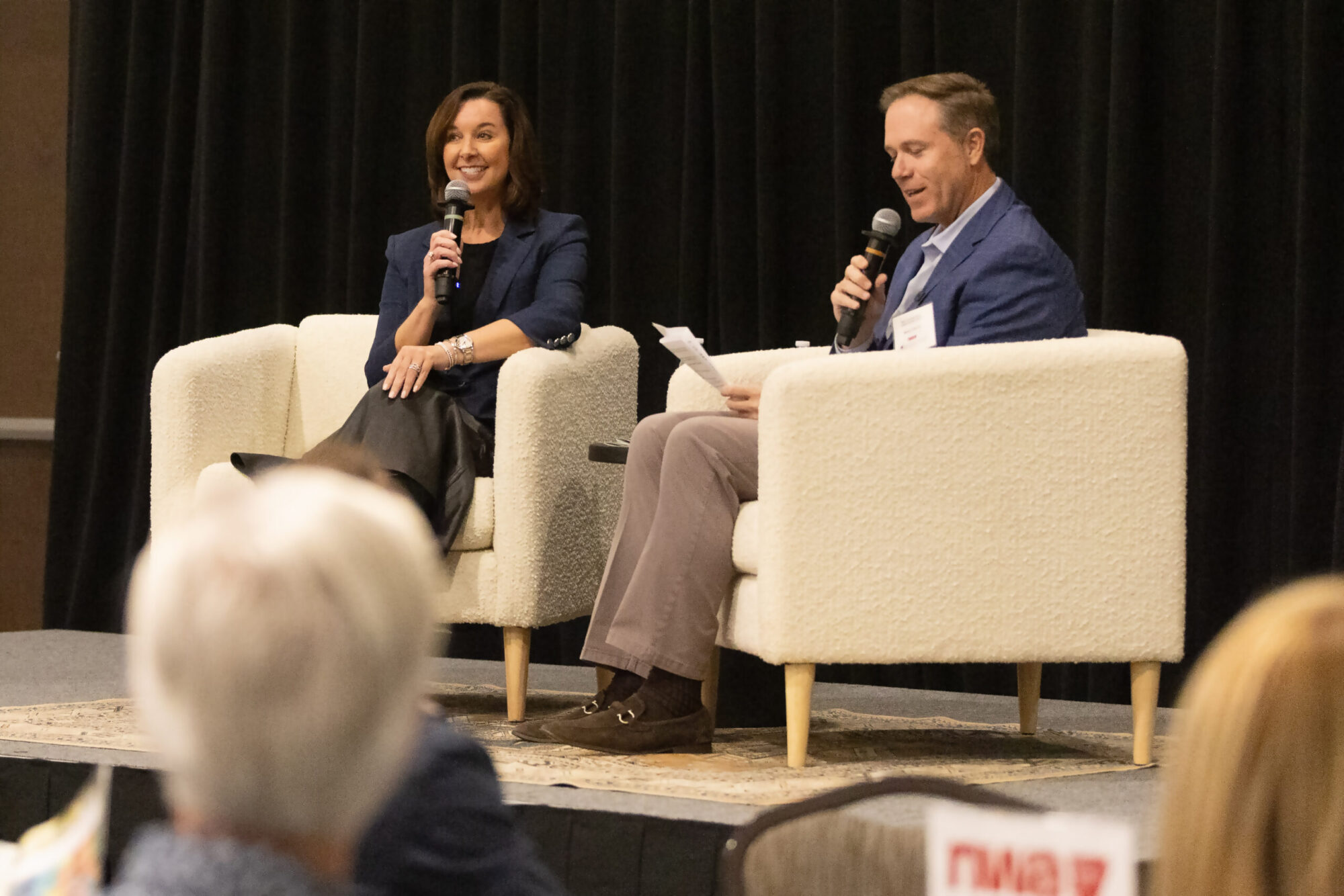Northwest Arkansas remains an outsized economic engine, outpacing the state and nation as a whole in population, employment and other measures, according to the 2023 State of the Northwest Arkansas Region report released today.
More than 300,000 people are part of the local workforce, incomes are up, poverty is down, and commutes are still fairly short, the report found.
“I think even the unemployment office has a ‘help wanted’ sign,” joked Mervin Jebaraj, director of the Center for Business and Economic Research at the University of Arkansas Walton College of Business, who presented the annual report today. Around 300 public officials, business leaders and others gathered at the Fayetteville Town Center to hear the report’s findings – the biggest attendance since the report was first published in 2011.
The healthy economic picture becomes more mixed when comparing NWA to high-performing peer regions around the U.S., weighed down by the soaring cost of local housing and a relatively low share of adults with bachelor’s degrees. The average price of homeownership rose faster over the last three years in NWA than it did in Austin, Texas, the Research Triangle area of North Carolina and several other peers.
“We’re No. 1 here – this is the place that we don’t want to be No. 1,” Jebaraj said. Rising wages don’t solve the problem, he added, when 13,000 more residents each year are born or move to the region.
“You can’t expect wages to do this work for you,” he said. “Are we building enough housing for all those people? No.”
Walmart has seen the issue firsthand in its efforts to attract new employees to the region and keep them here, Executive Vice President and Chief People Officer Donna Morris told the group.
“Housing costs – we used to sell that as an advantage,” said Morris, who’s also on the Northwest Arkansas Council’s Executive Committee. But now housing and relatively high airfare at NWA National Airport can dampen potential hires’ enthusiasm or slow the arrival of their families. “That is a real pullback on individuals moving here.”
The Council partners with the university center to release the report, which takes the region’s economic temperature on a variety of measures and compares those to six other successful metropolitan areas, including Des Moines, Iowa, and Provo-Orem, Utah. It underscores the importance of the Council’s many focus areas, including Groundwork, a workforce housing initiative that’s working with local governments, developers and investors to address the cost of homes and apartments.
Morris also mentioned the urgency of specialized health care and other services for people of all needs and backgrounds, touching on the Council’s work in improving health care and fostering a sense of belonging among NWA’s diverse communities.
“We want to compare ourselves to the best regions in the nation, see where we’re doing well, see where we’re not doing so well, and really hold ourselves accountable,” said Nelson Peacock, president and CEO of the Council.
























